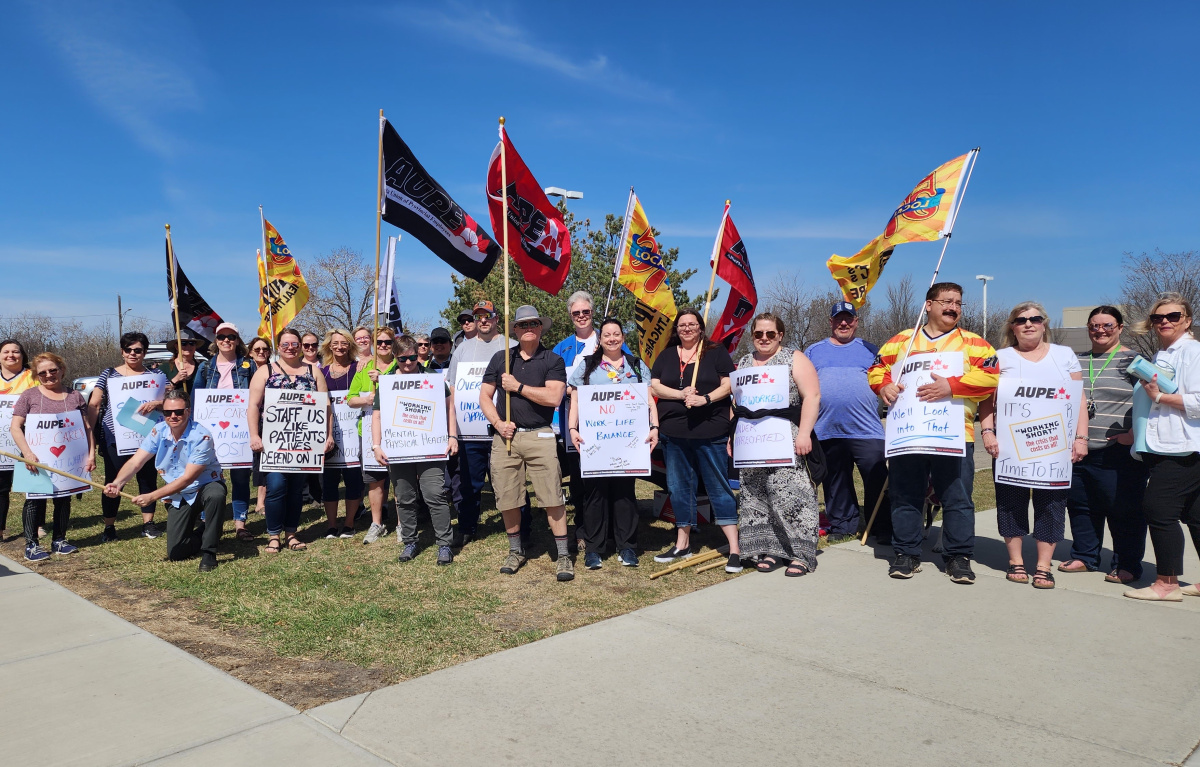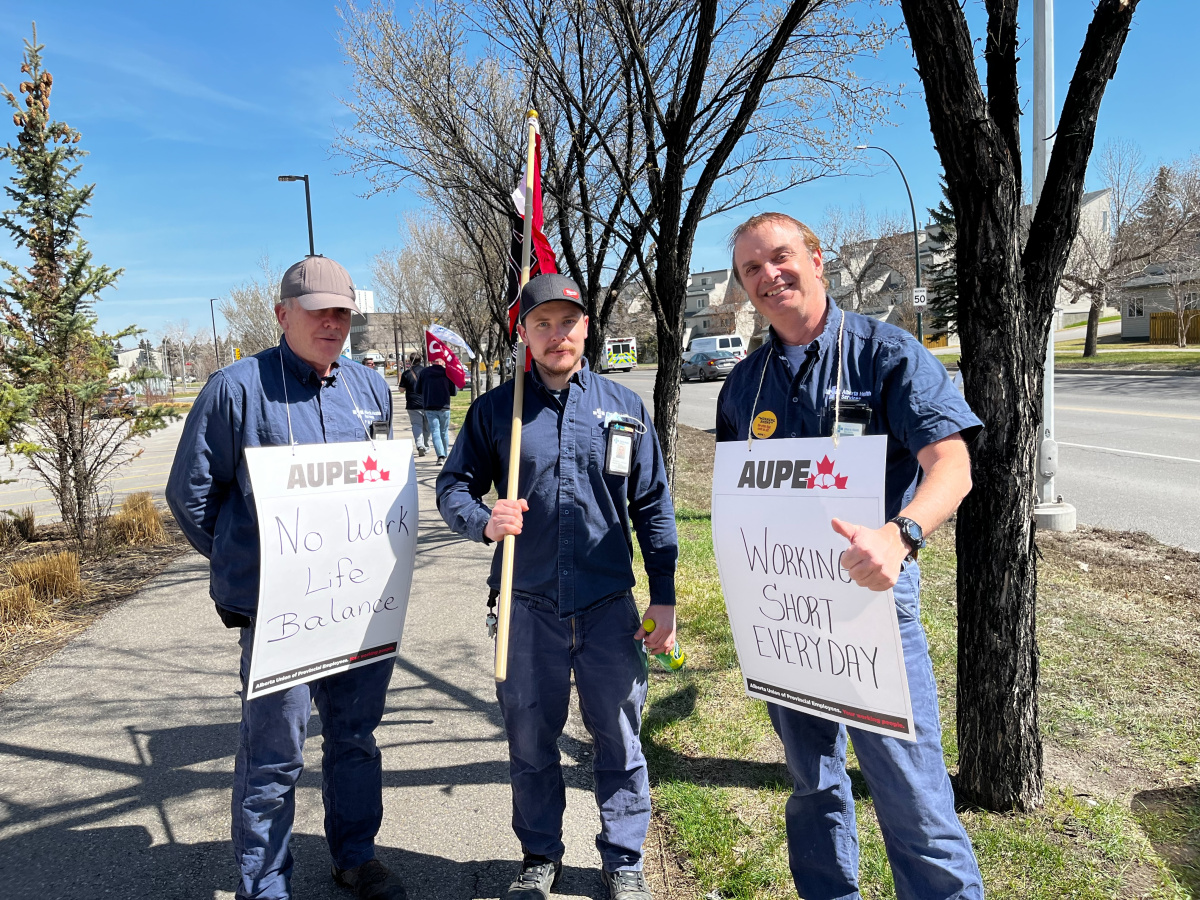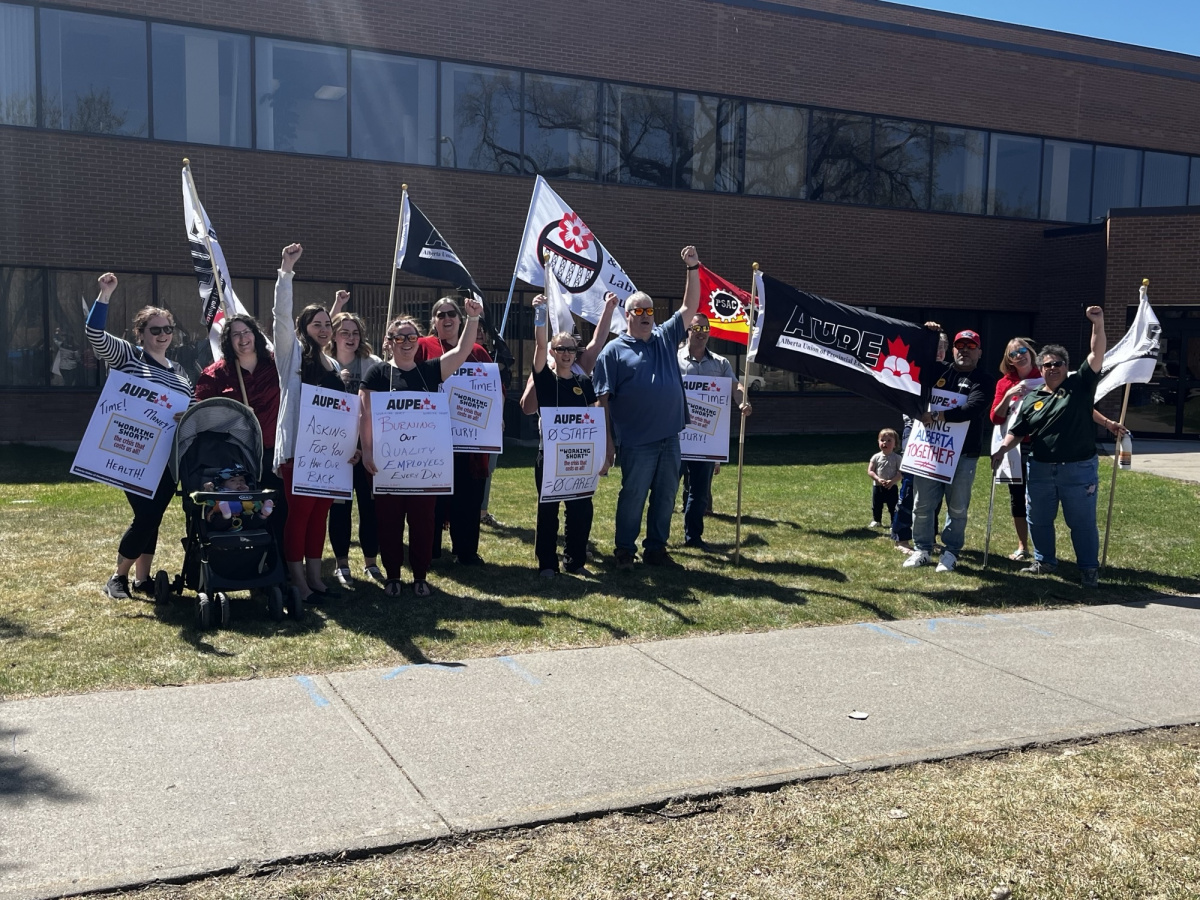Mayday, May Day! Fighting the working short crisis
By Alexander Delorme, Communications Staff
May 11, 2023
AUPE members across the province rallied on May Day to protest chronic short staffing. Read about the rallies and next steps for the OH&S committee’s Working Short campaign.
Working short is a crisis that costs us all. That’s the message AUPE’s Occupational Health and Safety committee sent on May Day, when AUPE members across Alberta rallied in support of better working conditions.
“We aren’t exaggerating when we say working short costs us all,” says Bonnie Gostola, AUPE vice-president and chair of the union’s Occupational Health and Safety committee. “From the front-line workers to the Albertans who rely on the services we provide, working short impacts everyone.”
AUPE members and supporters rallied on May Day, also known as International Workers’ Day, at major centres and workplaces throughout the province, including the Legislature Building, Red Deer Regional Hospital, Foothills Medical Centre, and Lethbridge Provincial Building.


AUPE’s Occupational Health and Safety committee heard from over 4,000 members earlier this year when it sent out its Working Short Survey. Some of the survey results are shocking. Seventy-five per cent of members said their employer has not replaced an absent co-worker, creating an increase in workload. Seventy-five per cent of respondents also said their employer had contracted out work to cover vacancies.
“This is an issue that matters to us, and you can see it in the members’ participation,” says Gostola. “Step one is identifying the issue, and now we have to act.”
It may feel like rallying across the province was the culmination of the Working Short campaign, but the fight is far from over. The committee is distributing more Working Short stickers throughout May and June. They are also creating a new Working Short Reporting Form, which will help AUPE address working short as an issue at the bargaining table.
Most collective agreements lack Articles to prevent short staffing. Using the Working Short Reporting Form every time you are short-staffed would establish evidence that working short is a real problem and something to address in collective bargaining.
“If there’s no evidence, there’s no case,” says Gostola. “Keep a journal and document every day you are working short. The more members who use the Reporting Form, the more effectively we can fight for minimum staffing levels at the bargaining table.”
Working short and unmanageable workloads will be a significant issue at most, if not all, bargaining tables during the many rounds of negotiations that will begin in 2024.
However, because working short is something that is not addressed in many collective agreements, some AUPE members have had success organizing to pressure their employer into fixing staffing levels- even where the contract is silent on the issue.
Direct Action tactics involve members at a workplace working together to create change. Instead of relying on the collective agreement or grievance procedure, members take real action like wearing the same coloured clothing or marching into their boss’s office all at once to get their point across. Members should talk to their Membership Services Officer or AUPE’s Organizing department for assistance with Direct Action.
“We must stand up for each other, one way or another,” says Gostola. “The working short crisis, along with the many other issues at our worksites, will not go away because we ask nicely. We have to fight for it.”
Watch our 2023 May Day video on our YouTube channel: https://www.youtube.com/watch?v=o5mRfbfEdeU

